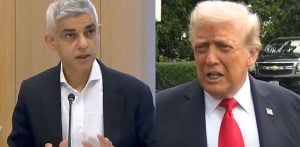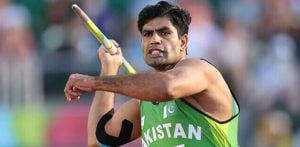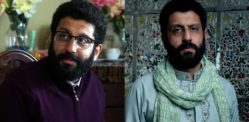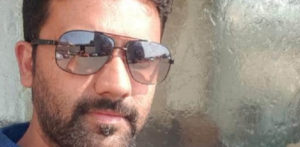"I have certainly encountered undertones of discrimination."
South Asian professionals play a vital role in the NHS. However, such professionals can face challenges and issues of racism.
The service has witnessed many South Asian doctors working for it over several decades.
By definition, these doctors include people from Indian, Sri Lankan, Pakistani, and Bengali backgrounds.
UK government reports highlight that Asian staff constitute the highest percentage of hospital and community health services (HCHS) doctors.
This refers to doctors working in staff grade, speciality doctors, and associate specialist positions.
Moreover, according to NHS Employers, 5.3% of the NHS workforce was from South Asia in 2023.
DESIblitz spoke to Dr Mukesh Kumar*, a paediatric neurologist who has worked for the NHS for over 25 years.
In our chat, Dr Kumar delved into his extensive career. He reflected on the changes he has seen and what inspired him to seek a medical profession in the UK.
When did you first start working in the NHS, and what motivated you to become a doctor in the UK?
 I began my career in the NHS in February 1997 after passing my UK qualifying exams on my first attempt in 1996.
I began my career in the NHS in February 1997 after passing my UK qualifying exams on my first attempt in 1996.
Coming from India, where I had completed my basic medical training, I was drawn to the UK’s well-established postgraduate medical training system and its strong reputation in clinical medicine, research, and academia.
The opportunity to work in a structured, evidence-based environment with access to cutting-edge treatments and multidisciplinary teamwork was highly appealing.
Additionally, the NHS was globally recognised as one of the best healthcare systems, offering a well-defined career progression pathway.
My decision was also influenced by a desire to challenge myself in a new healthcare system and explore the vast clinical exposure that the NHS provided.
I was particularly motivated by the chance to work in a system that prioritised universal healthcare, regardless of a patient’s financial background.
Despite the challenges that come with transitioning to a new country, I saw the UK as an ideal place to grow as a doctor and refine my expertise in a specialist field while contributing meaningfully to patient care.
What motivated you to focus on neurology as a pathway?
 Initially, I had intended to pursue general medicine and later specialise in neurology.
Initially, I had intended to pursue general medicine and later specialise in neurology.
However, during my early years as a junior doctor, I found paediatric neurology to be particularly challenging and intellectually stimulating.
Working in this speciality, I encountered complex cases involving rare conditions, many of which had no clear diagnostic or treatment pathways at the time.
The mystery of neurology, the gaps in scientific understanding, and the rapidly evolving nature of the field excited me.
I was seeing real-life cases of disorders that I had only read about in textbooks, which deepened my curiosity.
Unlike some other specialities, neurology presented more questions than answers, pushing me to think critically and stay at the forefront of emerging research.
Over the years, with advancements in medical science, many conditions once thought untreatable now have defined treatments and management strategies.
Witnessing this transformation and being part of a field that continuously evolves has kept me passionate and engaged throughout my career.
What changes have you noticed over your career in the NHS?
 Over the past 30 years, the NHS has undergone massive transformations across multiple spheres.
Over the past 30 years, the NHS has undergone massive transformations across multiple spheres.
When I first started, the workforce was more stable, salaries were relatively competitive, and funding was better allocated.
However, in recent years, the financial strain on the NHS has deepened, leading to staff shortages, increased workloads, and reduced resources.
The bureaucracy has grown significantly, making it harder for clinicians to focus purely on patient care.
Salaries, when adjusted for inflation, have not kept pace with the increasing cost of living, which has led to morale issues and greater attrition among doctors and nurses.
Work-life balance has also shifted, with more staff opting for private practice or leaving the UK altogether due to dissatisfaction with NHS conditions.
The structure of training has become more rigid and exam-driven, sometimes at the expense of practical learning.
However, technological advancements, electronic patient records, and telemedicine have improved efficiency in some areas.
Despite these changes, the NHS still remains a pillar of healthcare in the UK, though it is undoubtedly struggling under immense pressure.
Have you ever experienced racism or discrimination in your career in the NHS, and how did you deal with these incidents?
 I have not experienced overt racism or direct discrimination during my time in the NHS.
I have not experienced overt racism or direct discrimination during my time in the NHS.
But I have certainly encountered undertones of discrimination on several occasions, both from colleagues and the families of patients.
These instances have been subtle rather than blatant. Often manifesting in differential treatment, micro-aggressions, or biases in how decisions are made regarding career progression or accountability.
One noticeable aspect is that white British doctors and nurses often get away with errors more easily than non-white staff, a trend I have observed repeatedly over the years.
Despite this, the vast majority of my colleagues and patients have been respectful and treated me fairly.
I have dealt with these rare instances by focusing on my professional excellence, maintaining integrity, and ensuring that my clinical care is of the highest standard.
By consistently demonstrating my expertise, dedication, and patient-centred approach, I have earned the trust and respect of both my peers and my patients.
Have you experienced any differences between the careers of Asian staff and non-Asian staff?
 One of the most evident differences is that Asian doctors often work harder and take on more responsibilities, yet face greater scrutiny compared to their non-Asian counterparts.
One of the most evident differences is that Asian doctors often work harder and take on more responsibilities, yet face greater scrutiny compared to their non-Asian counterparts.
Non-Asian staff, particularly white colleagues, seem to have more leeway with errors and mistakes. Whereas Asian doctors are expected to consistently perform at an exceptional level to gain the same recognition.
Career progression can sometimes feel slower for Asian staff, and leadership positions are still disproportionately held by non-Asian doctors despite the large South Asian workforce in the NHS.
Additionally, Asian doctors are more likely to be placed in demanding specialities or given heavier workloads, particularly in their early training years.
While systemic bias still exists, those who persevere, excel clinically, and establish strong professional networks do succeed.
Over the years, I have learned that professional competence, resilience, and credibility are the best ways to overcome these challenges.
How do you navigate relationships with your patients?
 My approach to patient relationships is rooted in compassion, clear communication, and clinical excellence.
My approach to patient relationships is rooted in compassion, clear communication, and clinical excellence.
I believe in taking the time to listen to patients and their families, answer their concerns, and ensure they feel heard and understood.
Many patients come to consultations feeling anxious, and a calm, reassuring presence can make a significant difference.
As a paediatric neurologist, I work with families navigating complex and often lifelong conditions, so building trust and maintaining long-term relationships is key.
Being honest but empathetic, transparent and supportive helps establish a connection where patients feel safe.
Over the years, I have received overwhelmingly positive feedback, which has further reinforced my approach.
As an Asian doctor, what positive things have the NHS given you over the 25 years of your career?
 Despite its challenges, the NHS has provided me with an enriching career, allowing me to practice medicine at the highest standards in a diverse and intellectually stimulating environment.
Despite its challenges, the NHS has provided me with an enriching career, allowing me to practice medicine at the highest standards in a diverse and intellectually stimulating environment.
I have had the opportunity to work with world-class professionals, take part in multidisciplinary collaborations, and witness remarkable advancements in paediatric neurology.
The NHS has given me financial security, career stability, and professional respect despite the evolving landscape.
Over the years, I have also built strong professional and personal relationships with colleagues from all backgrounds.
The NHS remains one of the most diverse workplaces in the UK, where doctors from all over the world contribute to the healthcare system.
It has been immensely rewarding to mentor and guide junior doctors, especially those from South Asian backgrounds, ensuring that future generations are well-equipped for success.
Do you think the NHS represents South Asian people adequately? If not, what further steps do you think could be taken?
 The NHS has a significant South Asian workforce, particularly in medicine, but there is still underrepresentation in leadership and policy-making roles.
The NHS has a significant South Asian workforce, particularly in medicine, but there is still underrepresentation in leadership and policy-making roles.
While South Asian staff contribute enormously to frontline care, they are not always proportionately represented in higher decision-making positions.
Additionally, South Asian patients may not always receive culturally sensitive care, particularly in areas like mental health, end-of-life care, and genetic conditions prevalent in the community.
More targeted initiatives to promote diversity in leadership, mentorship programmes, and greater cultural awareness training could help.
Representation needs to go beyond just numbers—it should reflect meaningful influence in shaping NHS policies and patient care strategies.
What advice would you give to new Desi people entering the NHS?
 My advice to new South Asian doctors entering the NHS is to be prepared for challenges but stay resilient.
My advice to new South Asian doctors entering the NHS is to be prepared for challenges but stay resilient.
Focus on clinical excellence, build strong professional networks, and find mentors who can guide you.
Be proactive in your training, develop good communication skills, and assert yourself when needed—don’t let biases undermine your confidence.
Be aware of workplace dynamics, but never compromise your professional integrity.
The NHS is still a great place to build a career, but you must be strategic, hardworking, and adaptable.
Respect the system, learn continuously, and advocate for yourself when necessary.
Most importantly, support fellow South Asian colleagues—a strong network is invaluable for success.
Dr Mukesh Kumar’s positive attitude and inspiring words are a testament to his hard work and that of other South Asian doctors.
The medical staff in the NHS are not to be underestimated.
Like any business, the UK’s healthcare system is always evolving, witnessing change, and experiencing peaks and troughs.
But as Dr Mukesh Kumar rightly says, with the right integrity, determination, and confidence, the NHS is a great place for medical personnel to succeed and thrive.






























































